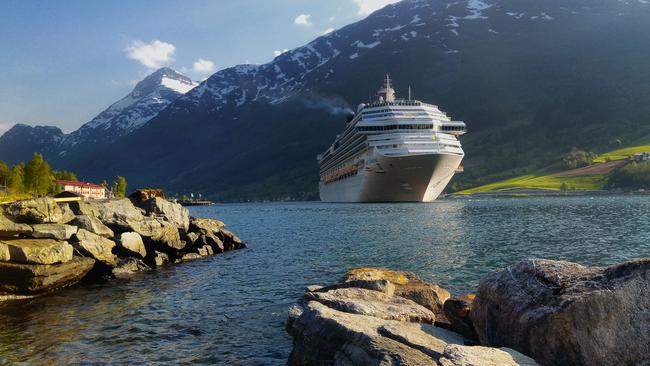Are smaller ships the answer to eco-friendly cruising?
With younger travellers increasingly conscious about the impact of their travels on the environment, cruise ships could be forced to get much smaller.

As the idea of slow travel continues to gain momentum, and travellers look to invest their time and money in scenic and sustainable alternatives, a number of cruise lines are introducing smaller vessels that cater to the needs of eco-conscious travellers.
Boasting appealing guest-to-guide ratios and far more immersive experiences, these smaller ships are also beginning to attract younger demographics who are placing an increasing importance on the impact of their travels.
“Expedition and niche alternatives started on the drawing board about eight to 10 years ago, but we’re seeing the fruition now — which is coinciding with a time when people with the financial capacity will be more likely to take a small-ship cruise over a mega one,” cruise-industry expert Ross Klein told Condé Nast Traveller.
In an effort to lessen its impact on the environment, AmaWaterways has introduced a diesel-electronic hybrid ship coined the AmaMagna. Atlas Ocean Voyage has also revealed that its World Navigator vessel will feature a hydro-jet propulsion system, and Ecoventura’s Evolve will incorporate an advanced water treatment plan.
“More destinations are developing their own sustainable cruise charters and directives,” Wassim Daoud, head of sustainability at Ponant — a small cruise line which recently unveiled the first hybrid-electric, LNG-fuelled ship to set sail in the poles — told Condé Nast Traveller.
A number of vessels are also pivoting their offerings in terms of itineraries, with many giving eco-friendly travellers the chance to visit ports that have now banned larger cruise ships. On the back of the historic center of Venice’s decision to do just that, Norway has revealed that from 2026, it will only allow zero-emission vessels to enter its World Heritage fjords.
With companies such as Uniworld Boutique River Cruises providing travellers with the opportunity to take part in artisan workshops in India, fish for plastic in Amsterdam, and meet the changemakers behind the Iraq Al-Amir Women’s Cooperative, the future of cruising appears promising.

To join the conversation, please log in. Don't have an account? Register
Join the conversation, you are commenting as Logout